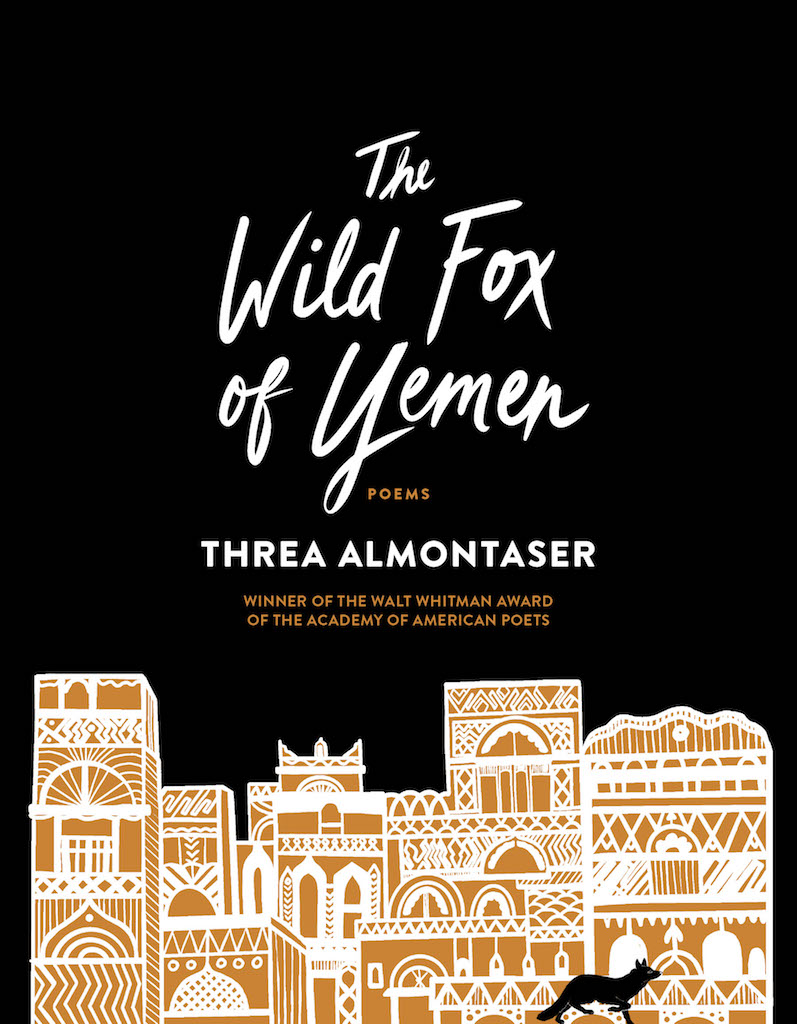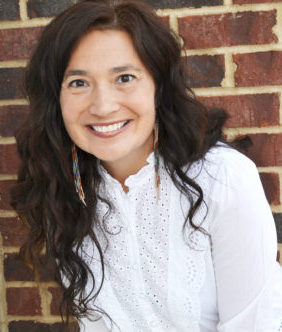Threa Almontaser’s book, The Wild Fox of Yemen, undoes me, bodily. These poetic worlds ferociously cast aside the white gaze in an act of reclaiming illegibility—while also acknowledging the searing that occurs from being unable to be interpreted. “Always seen me as something other,” in the poem “Stained Skin” as well as “Never will they interpret me correctly—” from the poem “Muslim Girls with White Guys, Ending at the Edge of a Ridge,” and other moments speak directly to the afflictions of possessing a “molten survival” and being “fluent in alien”1 when it comes to being Yemeni American in this country. Almontaser’s poems both delight and ravage, ache and grin, punch and sooth—you feel the voice being pulled apart while simultaneously in the act of stitching the self back together again.
I am reminded of all we must mend. I found myself thinking about illegibility/legibility in Brown and Black bodies. Illegible to whom? Here is where Almontaser’s work does the heavy lifting: to decolonize the self and poetic body, to push against the dominate narratives of this country, but also honor the wounding and grief-stricken work this is for any individual. Leaning into the illegible is legibility in decolonized writing—to write for, and to, and as a part of the beloveds—with disregard for the white gaze. I see this more as a decolonized legible, or the new legible for marginalized people.
I keep returning to “Heritage Emissary.” The work of this poem cores me. The couplets mimic tensions throughout the entire book with the push/pull of play and intense difficulty juxtaposed. The pluralities of being for multilingual individuals become verb—as in “When I Arabic my way/ towards them”—and we continue to see the stitch/wound paradox for the voice in, “I long to play a song that doesn’t terrorize,/ a song that’s understood.” The voice harbors the weight of oppression from a racist country where we see exhaustion of self-translation in the world. Even though the voice longs for legibility as a type of reprieve, these lines do not relent as they lean into the illegibility (the new legible) with homage to Marwa Helal’s form, The Arabic from Invasive Species, in which the lines are read from right to left in the last two couplets of the first page. We see the collective connection from poet to poet where the loneliness of the new legible begins to dissipate.
These lines set the cognitions on fire. Almontaser constructs lines with complex and dynamic turns such as, “About catching a wild fox with his cousin—Arabic/ the medium through which his body can return home.” Language is a transportation mechanism into memory and place. Story launches both voice and Baba into a vortex where past, present, and future collide. The voice becomes lost in believing the self as the “the wild fox” from Baba’s story. “I hear a line about a lost,/ sly animal, I am struck mute. Think he means me.” The power of story pauses us, makes us reconsider our dwelling in the world.
The anatomical meaning of emissary haunts me, “sending or coming out, as certain veins that pass through the skull and connect the venous sinuses inside with the veins outside.”2 Our tissues and cells as pathways. This poem hums in connectivity: in language, in history, in the body, in familial relations, in the belief of one’s wildness. The delegate of inheritance manifests in this poem, both by the voice and for the voice, as in a circulatory system of creating one’s own history, love of one’s own wildness, and understanding of lineage and self. I believe that radical acts begin inside our bodies. To love the self, for BIPOC and marginalized people, is an abolitionist act. I am grateful to Almontaser for this collection which has me ruminating over creative theory and my own wildness.
__________________________
1 Moments quoted from “I Thicken the Room w/ Dim Mirrors & an Altar of Aliens, Waiting for a Sign”
2 Quote from https://www.dictionary.com/browse/emissary




